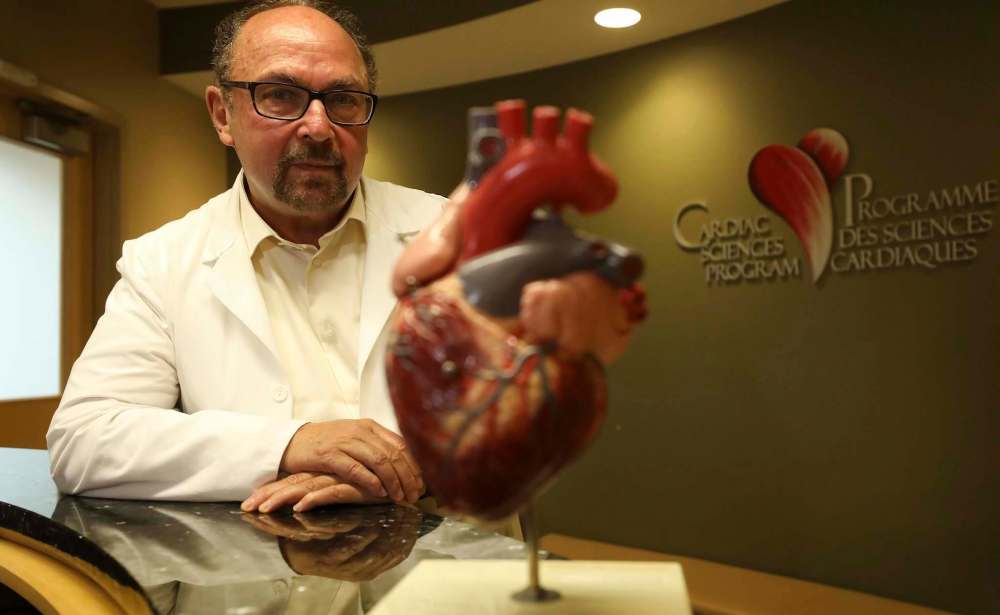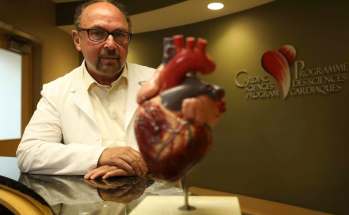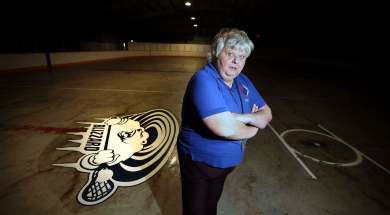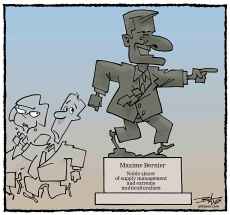WRHA moves to cut growing echocardiogram wait list
Read this article for free:
or
Already have an account? Log in here »
To continue reading, please subscribe:
Monthly Digital Subscription
$0 for the first 4 weeks*
- Enjoy unlimited reading on winnipegfreepress.com
- Read the E-Edition, our digital replica newspaper
- Access News Break, our award-winning app
- Play interactive puzzles
*No charge for 4 weeks then price increases to the regular rate of $19.00 plus GST every four weeks. Offer available to new and qualified returning subscribers only. Cancel any time.
Monthly Digital Subscription
$4.75/week*
- Enjoy unlimited reading on winnipegfreepress.com
- Read the E-Edition, our digital replica newspaper
- Access News Break, our award-winning app
- Play interactive puzzles
*Billed as $19 plus GST every four weeks. Cancel any time.
To continue reading, please subscribe:
Add Free Press access to your Brandon Sun subscription for only an additional
$1 for the first 4 weeks*
*Your next subscription payment will increase by $1.00 and you will be charged $16.99 plus GST for four weeks. After four weeks, your payment will increase to $23.99 plus GST every four weeks.
Read unlimited articles for free today:
or
Already have an account? Log in here »
Hey there, time traveller!
This article was published 21/08/2018 (2669 days ago), so information in it may no longer be current.
Manitobans are waiting a year or more to receive a key test that detects and tracks heart disease.
As of June 15, there were about 6,500 Manitobans on the wait list for an echocardiogram, and the list is growing at a rate of about 265 per month.
Patients facing heart emergencies are receiving tests immediately, while most of those whose conditions are considered urgent or semi-urgent are getting them within established Canadian benchmark times — about a week, officials say.

However, thousands of patients who are considered candidates for “elective” tests are waiting anywhere from 10 to 15 months, with a median wait of 12 months, according to the Winnipeg Regional Health Authority.
The WRHA recently received the go-ahead from the province’s Progressive Conservative government to spend close to $2 million over the next year to tackle the backlog.
Several new echo sonographers, the technicians that administer the tests, will be hired in the next few months. Most are being trained through a relatively new program at Red River College.
“There will be an expansion in the number of echocardiograms done in the (Winnipeg health) region effective within 60 days,” said Ross Feldman, medical director of the WRHA’s cardiac sciences program and a professor of medicine at the University of Manitoba. “That will be based on a significant expansion of hours in which the machines are going to be operating.”
A Winnipeg woman in her 50s recently expressed concern to the Free Press after being told she faced a year-long wait for an echocardiogram to check out what she termed as “weird heart palpitations.”
The woman, who asked not to be identified, said her condition is apparently not immediately life-threatening. However, she is worried about the long wait for her scan. The Canadian benchmark for an elective procedure is only 30 days.
“If it turns out there’s something wrong with the structure of my heart, I’m afraid there might be significant irreversible damage before I even get a diagnosis,” she said.
“I don’t want to die of heart failure 20 years from now when I could have lived 30 years. Not to mention the slight possibility of sudden death during the next year if my heart rhythm suddenly gets more erratic and other tests haven’t identified the cause.”
Several years ago, the WRHA commissioned the University of Ottawa Heart Institute to examine its $100-million cardiac program, centred at St. Boniface Hospital. The institute found while there are several things the program does well — including its “excellent” response to heart failure — it pointed out several areas of concern, including excessive numbers of non-urgent cardiac surgery cancellations and a then-4,000 person wait list for echocardiograms.
At the time, the president of the Canadian Medical Association said there was “no excuse” for the long waits, and the problem in Winnipeg was “unique to Canada.”
Since the institute’s report was released in January 2015, the wait list has grown by 2,500 persons.
Feldman said his goal is to get waits for an elective echocardiogram down to around 12 to 13 weeks — similar to the Manitoba wait for ultrasounds. He said while that’s still longer than the 30-day benchmark, it’s a “reasonable, feasible Manitoba target.”
Cardiac services program director Reid Love said the equivalent of four new full-time echo sonographers will be needed just to keep the wait list from climbing — more will be needed to reduce it. The cardiac program has been assured it will receive the funding it needs to do it.
Currently, the diagnostic test is only provided publicly at St. Boniface Hospital and the Health Sciences Centre.
A private clinic in Winnipeg began offering echocardiograms late last year — for a fee — but hasn’t made a dent in the huge backlog, the WRHA said.
While the funding is in place, the WRHA still needs to negotiate with the union representing sonographers on hours of work. In addition to boosting the number of technicians, the tests will now be done on nights and weekends, not just Monday to Friday during regular work hours, as is being done now.

Family doctors or cardiologists may order a non-urgent echocardiogram for a host of reasons. A patient may have a heart murmur or suffer from high blood pressure and the MD is wondering whether the patient’s heart has expanded. A patient may be suffering from unexplained shortness of breath or show some other evidence of heart disease.
John Rabson, a Winnipeg cardiologist, said his experience is if patients are urgently in need of an echocardiogram, they receive it on time.
He said he has also been able to arrange — after going through official protocols — to have less-urgent cases dealt with in a couple of months, if he feels a patient needs to have a scan done sooner than the average wait for an elective patient.
Rabson said elective echocardiograms in Winnipeg can take as long as 15 months to have performed.
“You would wish that it wasn’t there,” he said of the long waits, “but in a practical sense, there are (medical) situations where it can wait.”
Another local cardiologist, who asked he not be named, said one reason for the backlog is family doctors — with less training and experience in heart health — are ordering echocardiograms to rule out certain conditions.
“An 86-year-old lady with a little murmur — we don’t send that for an evaluation for an echo,” the cardiologist said. “With a family doctor, they may send them for that evaluation.”
Feldman said one of his goals is to make echocardiograms easier to obtain outside Winnipeg’s two largest hospitals.
He said the WRHA is also looking at ways for GPs to obtain the expert advice they need to help determine whether an echocardiogram is needed for their patients. That may include some kind of electronic hook-up with a specialist, he said.
“We’re looking at more than just reducing wait lists, but also at how to improve services,” said Feldman, who has been in his current role for a year.
While he wants to see wait times for echocardiograms drastically reduced, Feldman said the scans play a relatively minor role in patient assessment.
“The test isn’t the most important part. The most important part is listening to the patient, examining the patient and if there is a next step, referring the patient on,” he said.
larry.kusch@freepress.mb.ca

Our newsroom depends on a growing audience of readers to power our journalism. If you are not a paid reader, please consider becoming a subscriber.
Our newsroom depends on its audience of readers to power our journalism. Thank you for your support.








